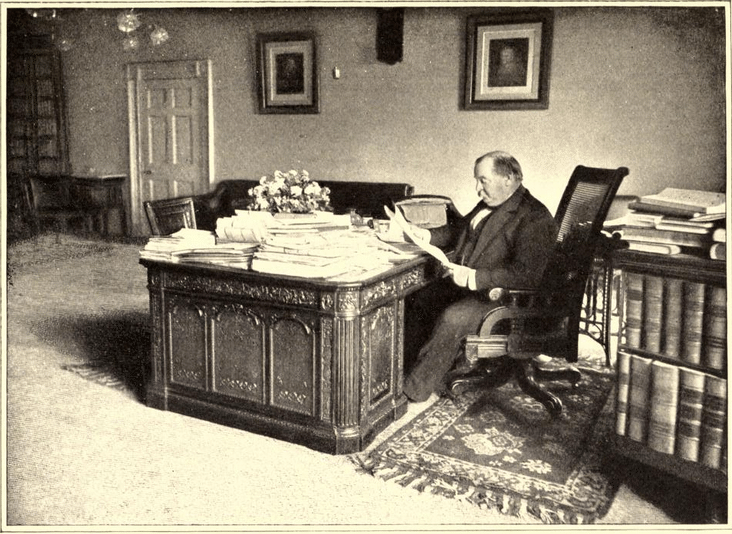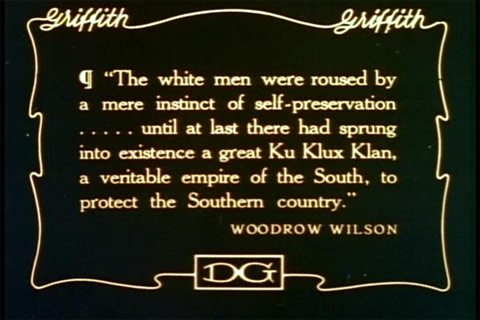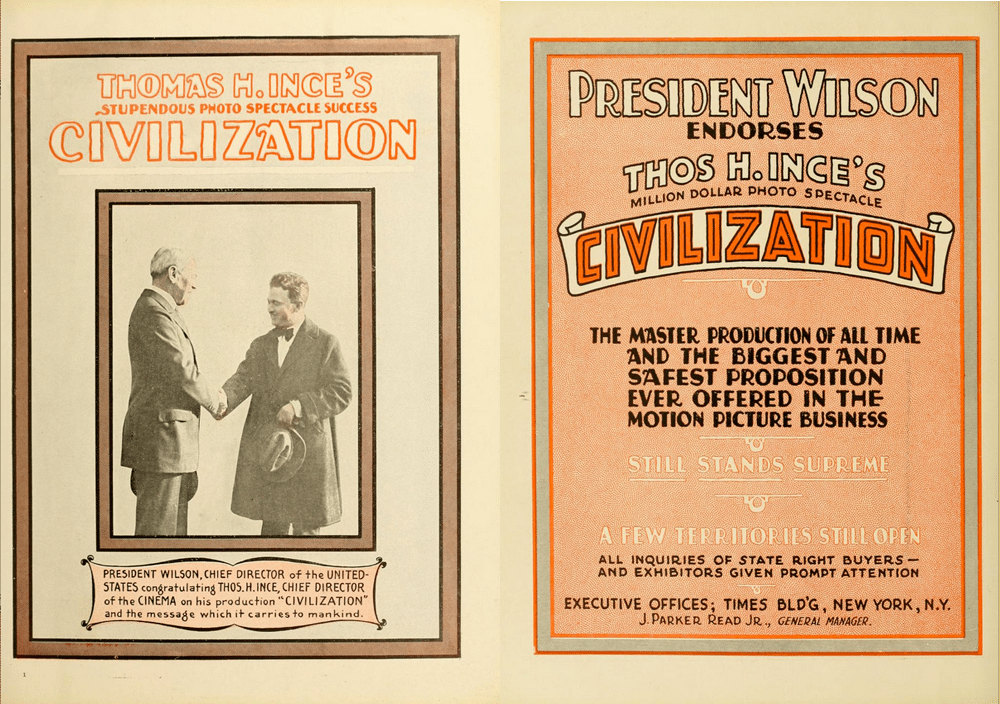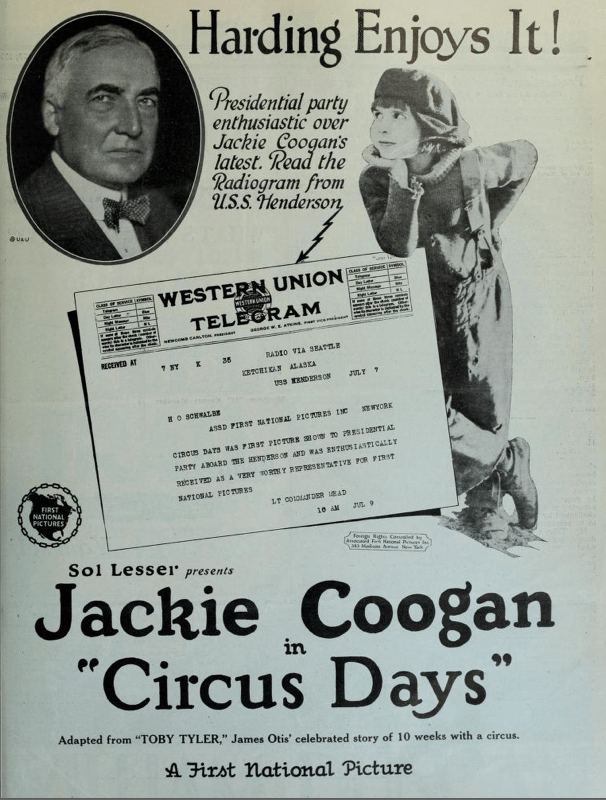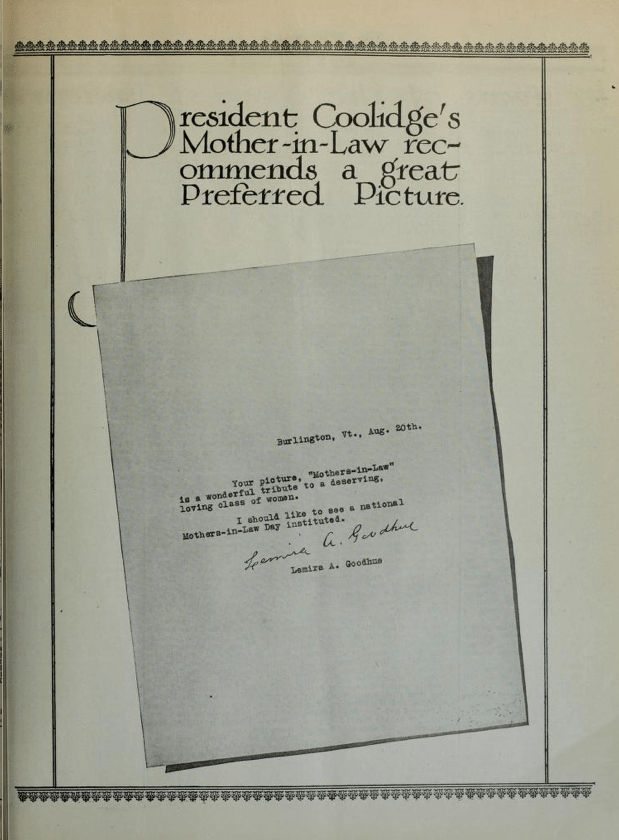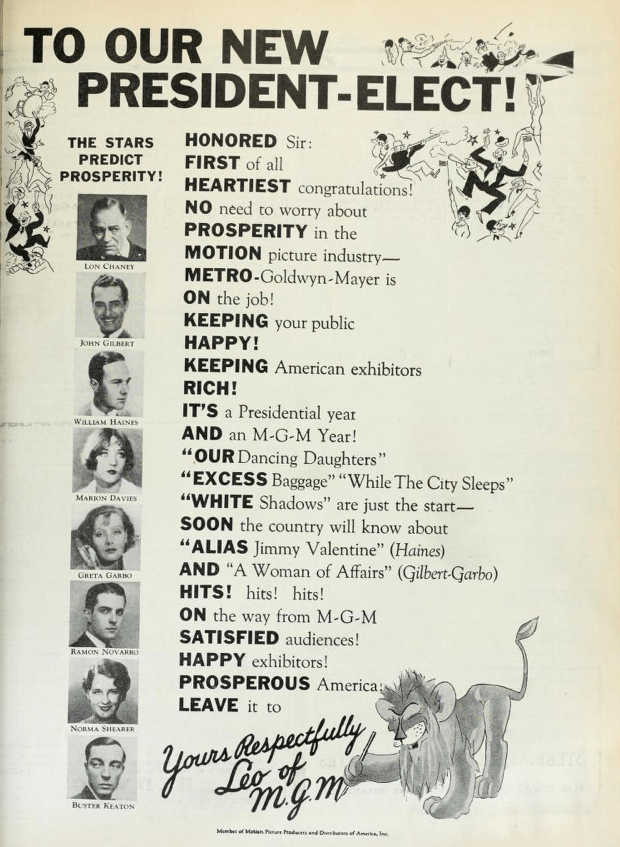Since its inception, the American film industry has held a special relationship with the leaders of the country. Even during the days of silent film, not only did presidents like William McKinley, Theodore Roosevelt and Calvin Coolidge serve as the subjects of films, they also used their influence to endorse the film industry as a whole and some notable movies in particular.
Grover Cleveland had the distinction of being the first president to appear on film. He had a brief appearance signing a bill into law in a filmed adaptation of a play called “A Capital Courtship” by playwright Alexander Black.
William McKinley also had the distinction of being among the first presidents captured on film. In the film below, the American Mutoscope and Biograph Company shot McKinley accepting the Republican nomination in 1896. In reality, the film was just a re-staging of the event, as McKinley had accepted the nomination several weeks prior to the shoot date. Even the Biograph Company itself had presidential supporters, including McKinley’s brother Abner and former president Benjamin Harrison. When McKinley was assassinated in 1901, his funeral procession also became the first to be captured on film.
Theodore Roosevelt arguably became the first true presidential movie star. From meeting Boy Scouts, to riding with the Rough Riders, to simply leaving the White House, Roosevelt quickly became the subject of numerous, albeit short, films from the likes of Thomas Edison and the Biograph Company. So much so that Chicago’s own Selig Polyscope released a fake film of Roosevelt supposedly on the hunt in Africa.
The film industry, of course, wasn’t purely focused on short, newsreel-esque films of influential figures. They were determined to produce entertaining pieces that stood on their own. But even these films readily welcomed praise and attention from the likes of the country’s leaders and their relatives.
Probably the most famous example of presidential endorsement of a film occurred when Woodrow Wilson became the first president to screen a film at the White House. The film screened? The hugely popular and very controversial “The Birth of a Nation.” At the time Wilson sung the film’s praises, declaring, “It is like writing history with Lightning. And my only regret is that it is all so terribly true.” But when the film began to draw criticism for its controversial content, Wilson’s staff was quick to deny his previous statement. But that didn’t stop director D.W. Griffith from including Wilson’s words in the opening title sequence of the film.
Although Wilson made the mistake to comment on “The Birth of a Nation,” that didn’t stop him, or future presidents, from commenting on less controversial pictures. When Thomas Ince released “Civilization” a few years later, Wilson heartily endorsed it for its anti-war message. In fact, Wilson’s re-election is credited to his anti-war platform and the success of “Civilization.” Once the U.S. entered World War I, however, the film was taken out of distribution.
When Wilson left office, First National Pictures proudly published a telegram that declared Jackie Coogan’s “Circus Days” was well received by Warren G. Harding’s party aboard the USS Henderson.
Preferred Pictures saw an opportunity for an endorsement when Calvin Coolidge’s mother-in-law made her opinion known concerning the aptly titled “Mothers-in-Law.”
Even as the man who occupied the office changed, the film industry worked to keep their relationship with the president open and strong, as evidenced by this ad targeted at the then unknown president-elect by MGM.
Obviously, an endorsement from a political figure could be a huge benefit to a studio or a director. Eleanor Roosevelt even wrote pieces for Photoplay magazine singing the praises of the film industry into the 1930s. Do you think a presidential endorsement for a film would cause audiences to go to the theater in droves like it did in the days of early Hollywood? Or would it have essentially no influence? Share your thoughts with us, and be sure to check out our past silent film series installments!
Want to dive deeper into the world of silent film? Keep up with my posts over on Curtains or on Chicago Nitrate.
